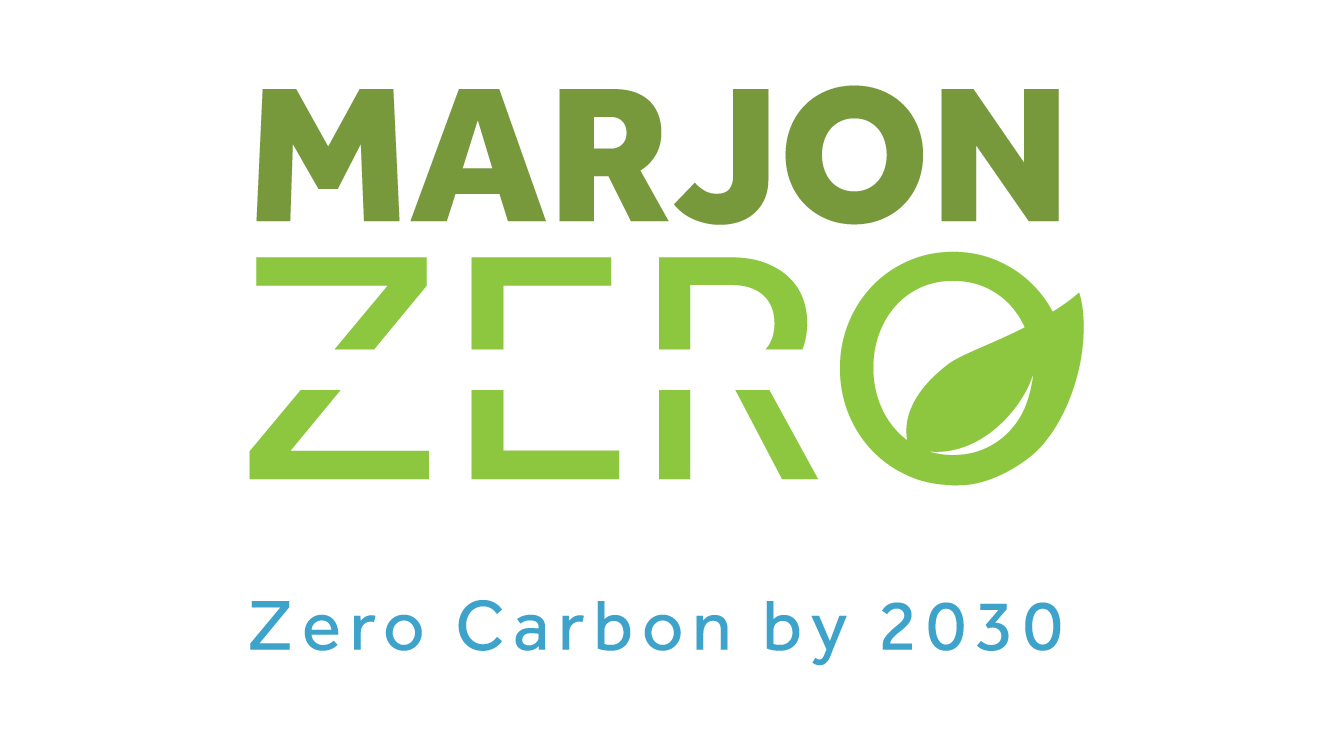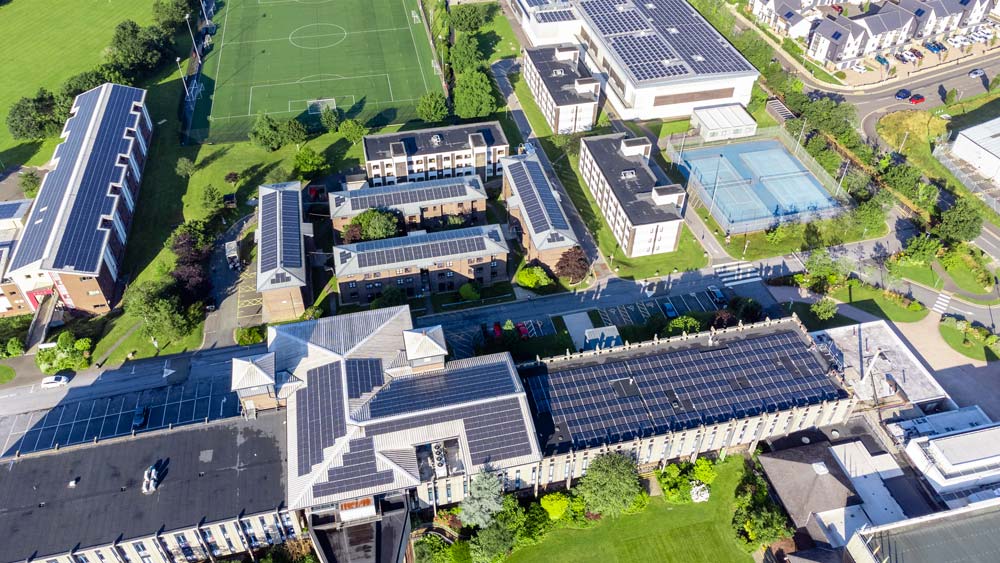Marjon Zero
Marjon Zero is an exciting visionary project to make our university one of the greenest in the country, doing our bit to protect the planet. We’re committed to zero carbon by 2030. At Marjon, we actively embed sustainability into everything we do. We work collaboratively across disciplines and find innovative solutions to our world's complex problems. We draw from the expertise of our Sustainability Team, SCION Research Group, Senior Management and talented students.

Phase one of Marjon Zero is already complete. In 2020 we installed approximately 2000 solar panels, saving 300 tonnes of carbon per year saved (tCO2e). In phase one we also switched our lighting to energy efficient LEDs and installed five electric vehicle charging stations.
Phase two of Marjon Zero was completed in 2022. This involved one of the biggest ground source heat pump installations in England, which will save 617 tonnes of carbon per year (tCO2e). This is equivalent to the energy use from 65 homes, or burning 1260 barrels of oil or charging 66 million smartphones.

What is Marjon Zero?
Marjon Zero will provide the campus with one of the cleanest and most renewable ways to heat our buildings and some of our accommodation.
This project is ground-breaking, with Marjon being the first University to implement a ground source heat pumps project of this size, meaning Marjon, its community and the surrounding areas are at the forefront of new sustainability initiatives in the race to net-zero carbon. The project is enabled by grants from the Public Sector Decarbonisation Scheme, to the value of £1.8m for solar panels and £3.5m for ground source heat pumps.

What is decarbonisation?
Decarbonisation is the term used for the process of removing or reducing the carbon dioxide (CO2) output of the economy.
Currently, a wide range of sectors run largely on fossil fuels, which means that their energy comes from the combustion of fuels like coal, oil or gas. The carbon dioxide emitted from using these fuels acts as a greenhouse gas, trapping in heat and contributing to global warming. By using alternative sources of energy, industries can reduce the amount of CO2 emitted into the atmosphere and can help to slow the effects of climate change.
What is a ground source heat pump?
A ground source heat pump is a central heating and cooling system designed to transfer hear from the ground’s upper layers. This enables us to reduce our reliance on fossil fuels.
It works by circulating a mixture of water and antifreeze around a loop of pipe which is buried in the ground. The heat from the ground is absorbed into the fluid and then it passes through a heat exchanger into the heat pump. This heat can then be used to heat radiators buildings, warm air or underfloor hearting systems and hot water. They run constantly and are inexhaustible and virtually silent.
More Information
At Marjon, we believe we have a responsibility to achieve a sustainable campus for everyone in our community. Plymouth Marjon University wishes to educate all campus users, and be an example of how you can live sustainably. So, if you want to get involved with Marjon Zero, or other sustainability work, follow the links below. You can also read our Sustainability Policy and Strategy and learn more about our Sustainability Team.
- How you can get involved
- Sustainability Policy and Strategy
- Sustainability Team
- Education for Sustainability
- SCION Research Group
- Sustainability Blog
- Living Lab Research: sustainable food consumption at Marjon
- Biodiversity: What's happening on campus?

What next?
In future phases of the Marjon Zero project we’ll go on to retrofit current buildings and make our campus a greener space by expanding our green social spaces and the biodiversity around campus.
